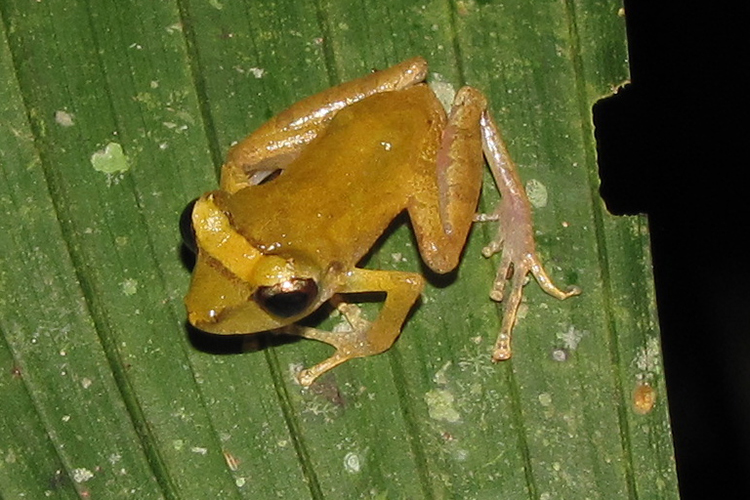
Pygmy Rain Frog (Pristimantis ridens)
Changes in climate and land use are expected to reduce the livable area for tropical frogs because these species will increasingly encounter temperatures hot enough to harm their behavior, reproduction and physiology. Climate change, however, may be the most destructive force, according to a recent study involving a researcher from UC Berkeley.
The researchers found that declines in frogs’ thermally suitable habitat area from climate change alone could be up to 4.5 times greater than declines attributable to land-cover change only, such as converting a forest to agriculture. Unlike humans, frogs rely on external sources to regulate their body temperature, so habitats in which frogs are unable to keep their body temperature below their maximum temperature limit are unlikely to support frog populations.
For the study, ESPM Ph.D. student David Kurz traveled to Costa Rica and conducted frog surveys in three land-cover types: forest fragments, heart of palm plantations and pasture (a few of the frogs that live in the study area are shown in the slideshow above). After 400 surveys, Kurz and lead author Justin Nowakowski, a postdoctoral researcher at UC Davis, identified frog species restricted to forest as well as species that were able to survive in the agricultural areas.
From this data set and data on frog thermal tolerances, the research team, including scientists from John Carroll University, Zoo Miami and Florida International University, modeled the shifting thermal landscapes of frogs to determine how much suitable habitat area would remain 80 years into the future for frogs with different thermal tolerances under a variety of land-use and climate scenarios.
“Our field data and subsequent modeling show that frogs that are better able to withstand rising temperatures have a better chance of survival in a rapidly changing world,” Kurz said.
The researchers found that frog species living exclusively in forests were most sensitive to the high temperatures that come from the combination of climate change and forest conversion.
The study was published September 26 in the journal Conservation Biology.
